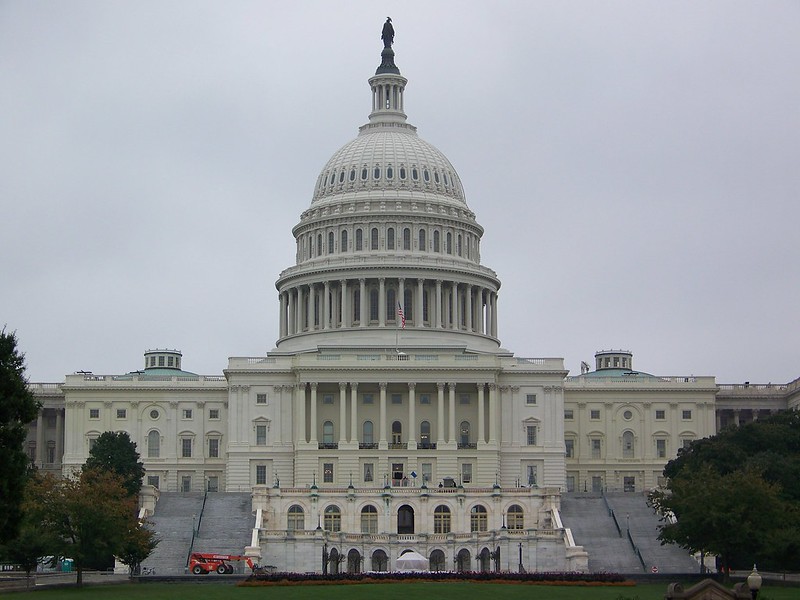
In a letter to members of Congress, ATR urged lawmakers to reject efforts to retroactively increase taxes on taxpayers claiming the conservation easement deduction in future legislation.
While conservatives have rightly called on Congress to offset future spending proposals, this should not be an excuse for lawmakers to offset spending proposals with tax increases, especially retroactive tax increases.
Congress has repeatedly declined to limit the conservation easement deduction in the past, so there is little justification for retroactively raising taxes now. Doing so would undermine confidence in the tax system and the legal agreements made between taxpayers and land trusts.
The full letter is below and here.
Dear Member of Congress:
As you consider proposals to mitigate the economic damage that COVID-19 has caused, I urge you to reject efforts to impose retroactive tax increases on American workers and businesses.
Many conservatives, including Republican Study Committee Chairman Mike Johnson (R-La.), have rightly called on Congress to offset new spending in future Coronavirus legislation.
While this is the right approach, it should not be an excuse for lawmakers to offset spending proposals with tax increases.
This is especially true when it comes to retroactive tax increases, which would simultaneously raise taxes on income taxed and earned in prior years and on income earned going forward.
Some lawmakers have proposed retroactively increasing taxes on taxpayers claiming the conservation easement deduction, a move with little justification that would undermine confidence in the tax system. This proposal should be rejected.
Retroactive tax policy should be rejected. The tax code relies on consistency, certainty, and fairness. Taxpayers routinely make decisions based on a reasonable interpretation of the law with the expectation that future changes to the law will not be applied looking backwards.
Retroactively changing the tax code undermines these principles by changing the rules after the fact. This can have significant financial consequences for taxpayers in the form of thousands or millions of dollars in additional tax liability from past years’ individuals or businesses.
It can also increase costs prospectively given that financial decisions would have been made based on the prior interpretation of the law.
This undermines confidence in the tax system and discourage taxpayers from taking advantage of explicit tax incentives (e.g., for charitable contributions, business investments, and energy efficiency) if they fear Congress might retroactively eliminate these incentives in the future.
What is the conservation easement deduction? The conservation easement deduction has existed for decades and incentivizes property owners to conserve land and historic sites by offering a charitable deduction. In order to claim the deduction, the taxpayer must agree to restrict their right to develop or alter the property. Organizations known as land trusts agree to monitor the restrictions placed on the property.
In exchange for foregoing the opportunity to develop the land, the taxpayer is allowed to deduct the “fair market value” of the property, limited to 50 percent of adjusted gross income (AGI) in any given year with the ability to carry forward any unused deductions for up to 15 years.
There is no justification for a retroactive conservation easement deduction tax increase. One proposal, S. 170, the “Charitable Conservation Easement Program Integrity Act of 2019,” would make changes to the conservation easement deduction effective to “contributions made in taxable years ending after December 23, 2016.”
This would restrict or disallow deductions from donations made as far back as January 2016 – imposing tax increases on taxpayers retroactively for tax years 2016, 2017, 2018, and 2019 and imposing tax increases prospectively.
Not only would this significantly increase taxes, it would undermine the legal agreement that taxpayers enter into with a land trust to not develop the land. Under S.170, the taxpayer would still be bound by this agreement, even though their ability to claim the tax deduction would be reduced or eliminated.
The December 23, 2016 date coincides with the release of IRS Notice 2017-10, a notice released without prior stakeholder input that subjected taxpayers to burdensome new filing requirements and onerous compliance costs. While this notice signaled the intent of the IRS to scrutinize transactions, there is no basis for it to be used as justification to narrow the deduction.
Any legislative changes to the provision are in the domain of Congress, which has repeatedly declined to limit the deduction both before and after the IRS Notice:
- Since the 2016 notice, Congress has passed several substantive pieces of tax legislation including the Tax Cuts and Jobs Act and tax extenders legislation. In each case, Congress declined to impose limitations on the deduction.
- There is significant legislative history affirming the intent of Congress to expand the deduction. Most recently, In 2006, the deduction was temporarily enhanced with strong bipartisan, bicameral support to allow taxpayers to deduct up to 50 percent of their adjusted gross income and carry forward any unused deductions for up to 15 years. This enhancement was made permanent in 2015, a year before Notice 2017-10.
If lawmakers determine that the conservation easement deduction or any statutory provision is being used by taxpayers in a way that is inconsistent with its original intent, Congress should disallow or modify the provision on a prospective basis.
As lawmakers consider proposals to offer further relief from the economic damage caused by COVID-19, it is crucial they reject retroactive tax increases on American workers and businesses, including efforts for a retroactive conservation easement deduction tax increase.
Onward,
Grover Norquist
President, Americans for Tax Reform

